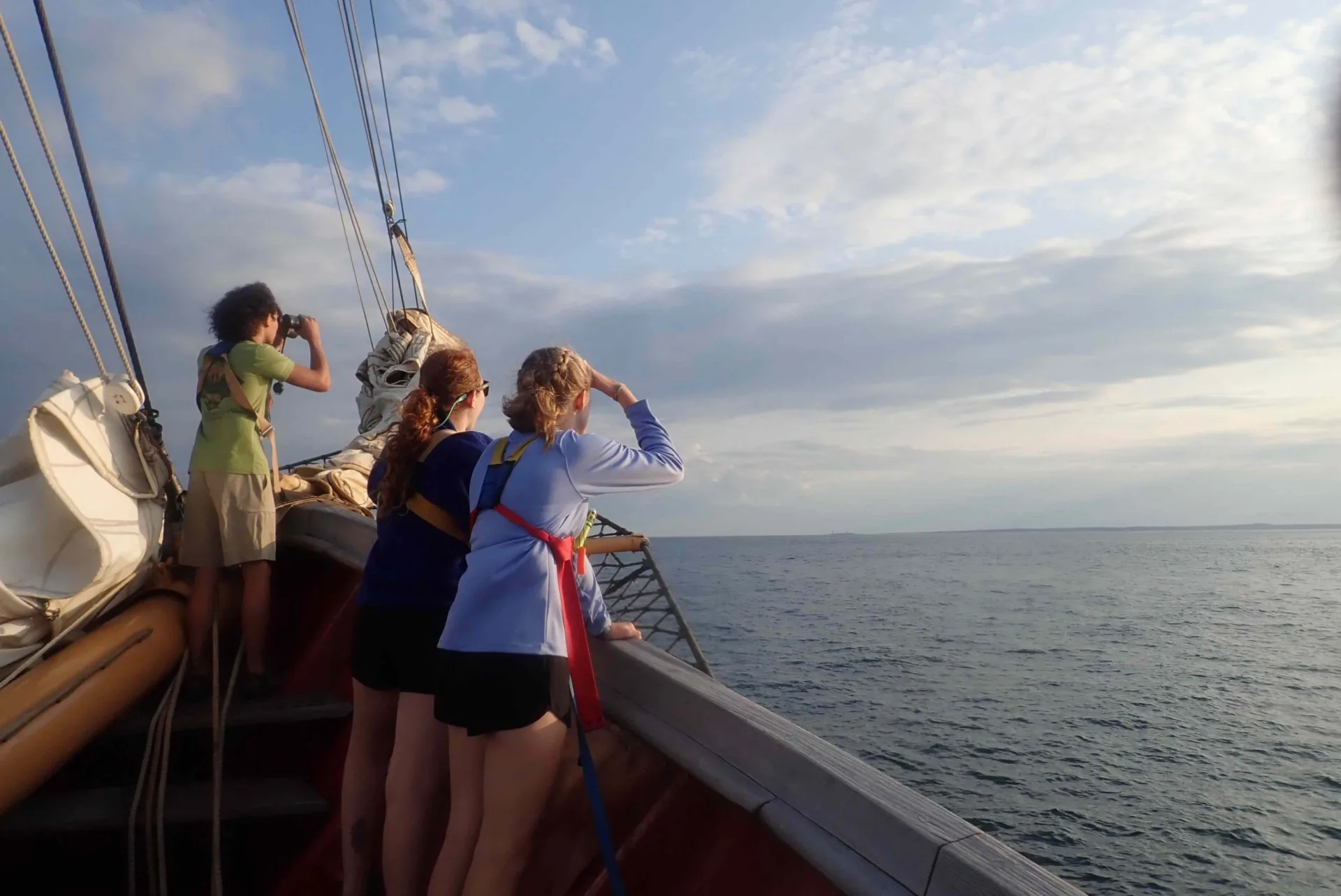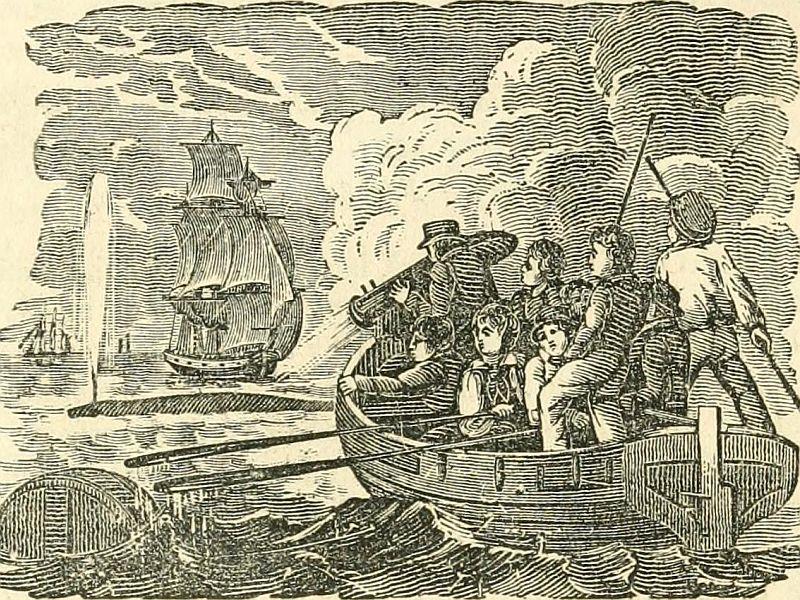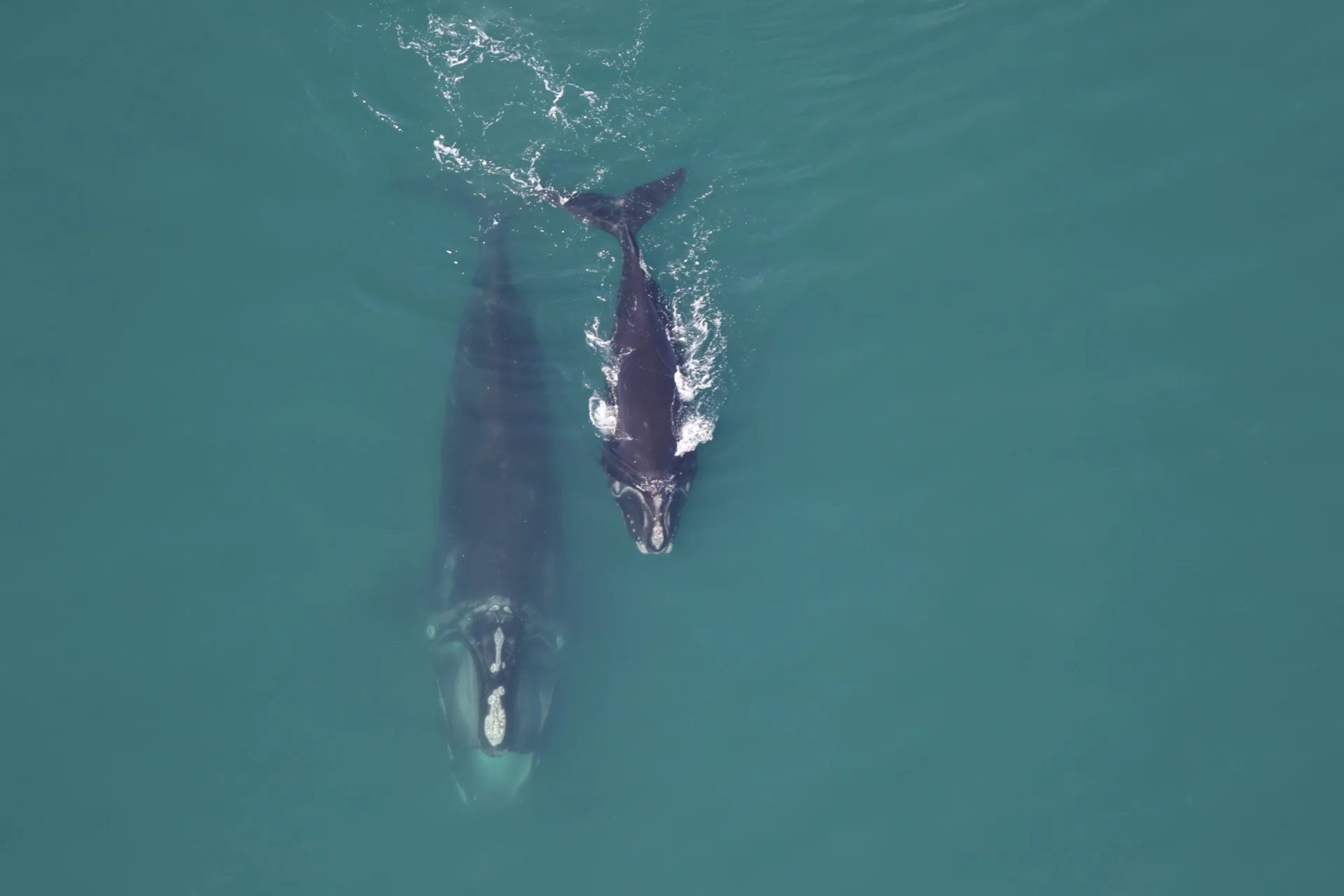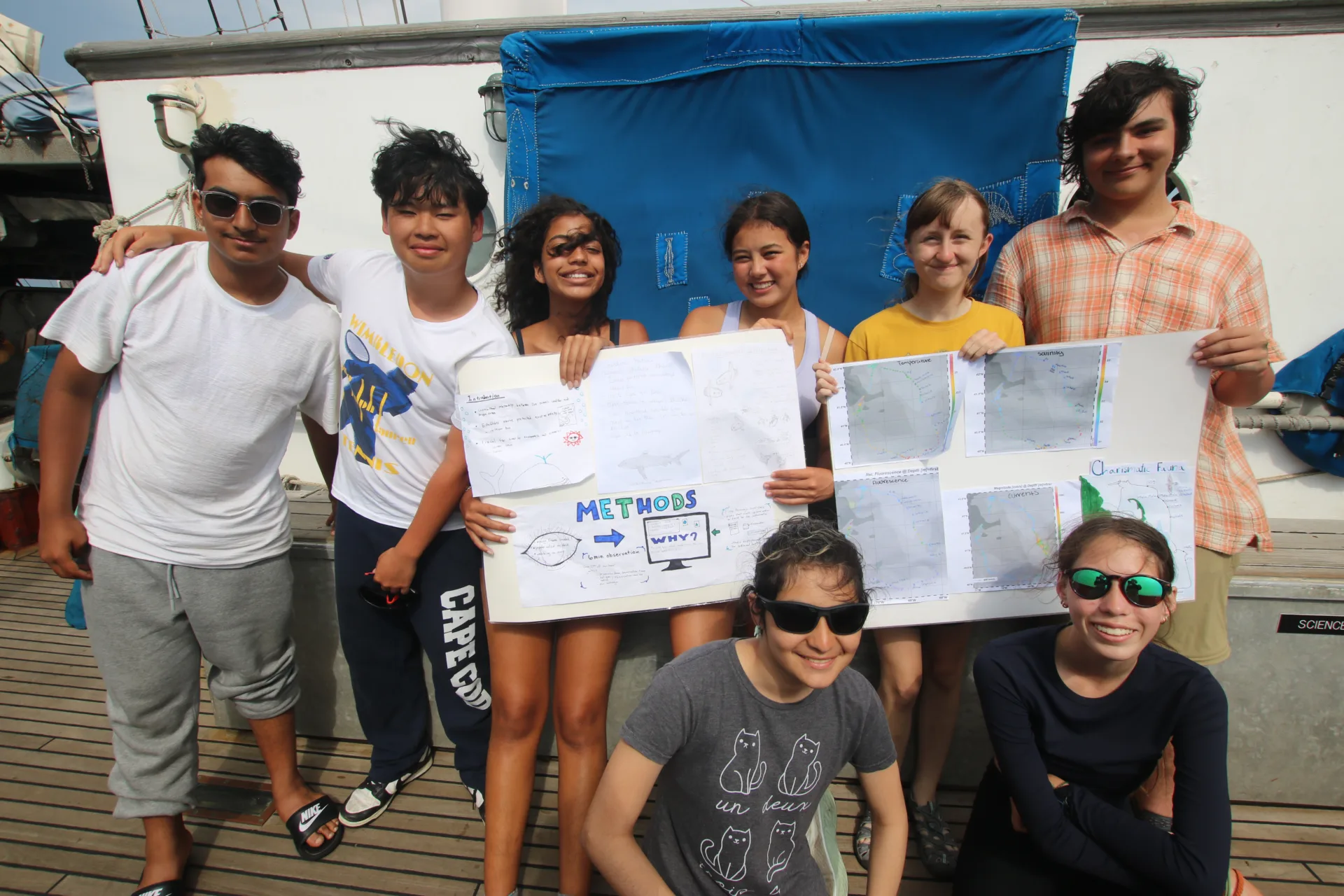The History of Whaling & Whale Conservation
The North Atlantic Right Whale remains critically endangered even as other whale populations recover. This three-week summer program examines how New England’s whaling history created today’s conservation challenges—and how understanding that history shapes current efforts to save the Right Whale from extinction. Combine classroom work in Woods Hole with a week sailing from Cape Cod Bay to Stellwagen Bank National Marine Sanctuary aboard the SSV Corwith Cramer while conducting visual and acoustic whale surveys and visiting Nantucket to examine the historical epicenter of American whaling.
Research Themes

Learning Objectives

Trace Whaling's Legacy in New England
Explore how commercial whaling shaped New England’s economy, culture, and marine ecosystems through site visits, historical research, and expert discussions. Examine the rise of the anti-whaling movement and the establishment of protections like the Marine Mammal Protection Act. Understand how past exploitation informs present-day conservation policy.

Survey Whale Habitat and Food Sources
Sail to Nantucket and Stellwagen Bank National Marine Sanctuary aboard SSV Corwith Cramer. Conduct neuston tows to sample the zooplankton that whales feed on, and perform visual and acoustic observations to detect whales. Learn survey methods that scientists use to track critically endangered Right Whale populations.

Connect Research to Active Policy Debates
As the Marine Mammal Protection Act faces new challenges—shipping lanes, fishing gear entanglement, offshore wind development—examine how science, history, and stakeholder interests collide in conservation policy. Host a symposium with local experts to discuss current whale conservation strategies and present your findings on how historical context matters.
Course Descriptions & Syllabi
Students earn 4 semester hour credits from University of Minnesota upon successful completion of the program.
Marine Environmental History – Whaling300 level, 4 credits, CAS NS 323
Employ methods and sources of historians and social scientists. Examine the role of human societies in coastal and open ocean environmental change. Issues include resource conservation, overfishing, pollution, invasive species, and climate change.
Apply
Upcoming Sessions
Program Dates
May 21, 2026 - Jun 12, 2026
Cost & payment
APPLICATION PROCESS
- Complete your application
- Gather two references and an unofficial transcript
- Coordinate with your university
- Obtain medical clearance
- Apply for a passport
- Speak with our team